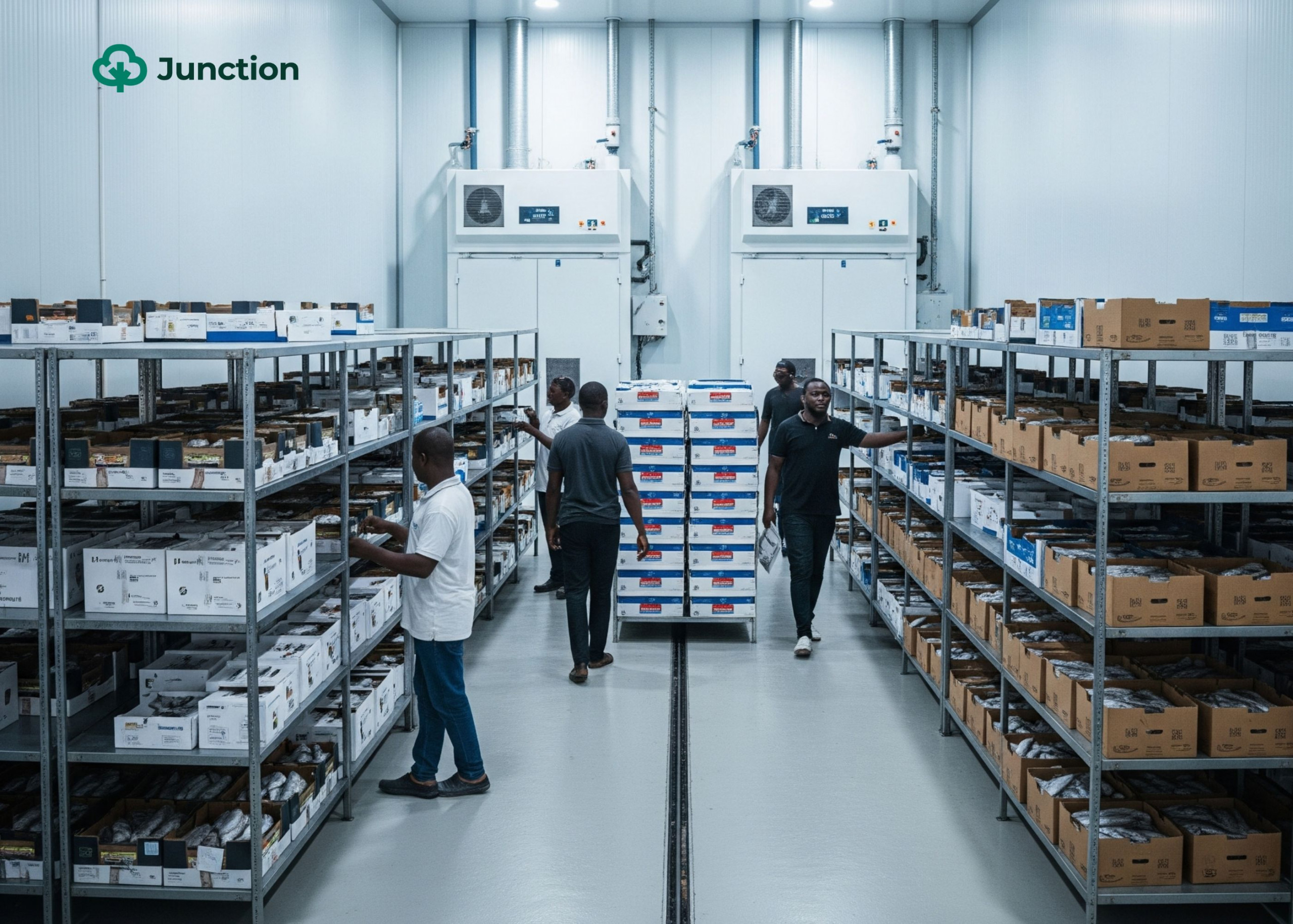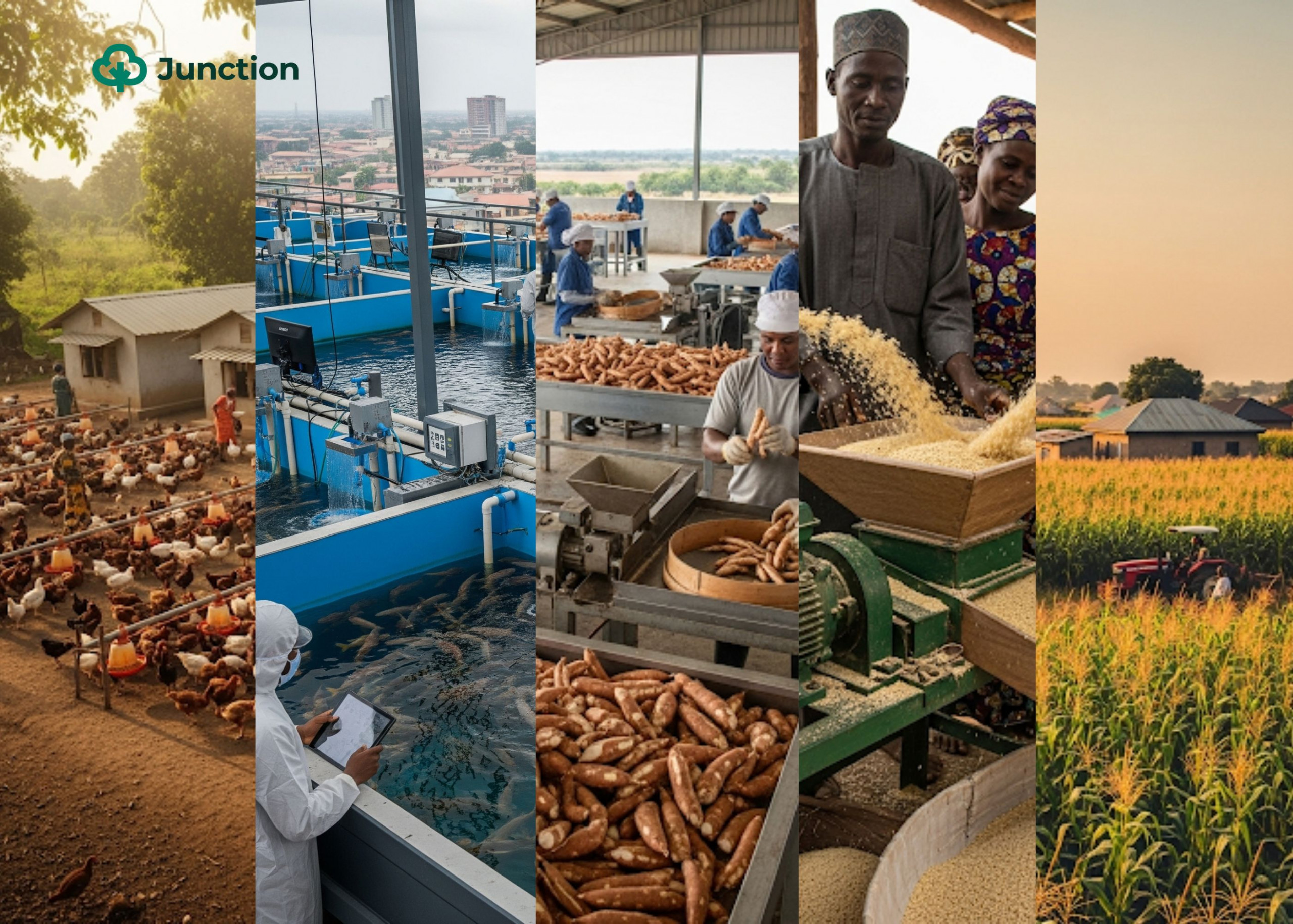Fish farming is one of the growing agricultural industries in Nigeria. More Nigerians, particularly the youth, are embracing fish farming as a business and a means to escape the country’s high unemployment rate.
From exploring the farming of catfish and alternative breeds like Tilapia to innovative approaches to fish processing and creative ways of reducing costs and improving profits, the Nigerian fish farming sector is growing through local efforts.
The deficit in the supply of fish in Nigeria particularly drives the sector. The nation consumes over 3.2 million metric tonnes of fish annually, yet local farmers produce only about 1.2 million tonnes, leaving a supply gap of more than 2 million tonnes.
Farmers and entrepreneurs in the sector continue to explore various ways to supply the needs of consumers for the popular alternative protein source, growing the agriculture sector. International bodies and government-led interventions and investments also contribute to the sector’s growth.
Despite this progress, industry experts like Alasinrin Musbau Abdulkadir, founder of BawBaw Farms, note that Nigeria’s fish farming sector remains under-explored. While the popular grow-out phase, raising fish from fingerlings to market size, gets most of the attention, several other lucrative value chains are waiting to be tapped
He opined that several of these other lucrative value chains in the industry can still be explored by those who are not even farmers.
“The pond is just beginning. The real wealth lies in building systems, adding value and solving the supply chain gaps that others overlook,” he told this publication during an interview.
1. Hatchery and Nursery
Hatchery and nursery operations are foundational to the aquaculture sub-sector, and this phase of fish farming presents a niche that is often overlooked, yet it is a lucrative and high-value job creation space.
This value chain focuses on the reproduction, breeding and early-stage care of fish. This includes hatching them from eggs and raising them to juveniles/fingerlings and nursery stages, which is the further rearing of the fingerlings to larger sizes before transferring to the grow-out ponds.
There are successful ventures in this space in Nigeria. Like the Dickem Fish Farms, which has been supplying fingerlings to hundreds of local farmers, and another in Bauchi State, which has directly created jobs for breeders and hatchery operators, contributing to a combined annual revenue of over ₦229 million.
2. Off-Taking and Distribution
Ventures operating in this space bridge the gap between farmers and markets. Many grow-out farmers do not interface directly with the market or even know who their final consumers are; these off-takers take care of that part.
Off-takers who understand market demands and logistics streamline the supply chain and ensure farmers have reliable buyers, and in the process, secure a viable income for themselves.
They may not have a single fish farm, but can supply millions of fish to customers by securing deals with various fish farms to buy directly from their ponds and sell to the end customers. It can be very lucrative for enterprising Nigerians who are resourceful and deft in business and market facing.
3. Cold Chain Logistics
Establishing efficient transportation and storage solutions for fish products is key to the distribution of fresh fish. Aside from facilitating distribution and sales, the cold chain value chain protects the sub-sector from post-harvest loss, which is a major issue in Nigeria.
The current inadequacy in the cold storage and transport value chain is responsible for the huge post-harvest and income losses of fish farmers and sellers. In many regions, up to 70% of processed fish is sold directly to consumers, while only 30% is handled by wholesalers, often because of limited cold chain capacity. Effective and efficient cold chain logistics facilities, like cold rooms and refrigerated transport systems, can improve market access and reduce spoilage.
The crucial offering of this sector gives it a high commercial potential, assuring investors or entrepreneurs in this sector huge income.
4. Value addition and Fish Processing
Value addition to fish product through processing means like smoking, drying, filleting or roasting is another very lucrative value chain in the fish farming sector. Many Nigerian fish farmers and entrepreneurs earn millions in income per cycle through fish processing.
Packaged fish products like dried/smoked fish, fish sausages are high-demand staples in food markets, thereby enhancing profitability. These products not only cater to local markets but also open avenues for export, as processed fish has a longer shelf life and is easier to transport.
Between 2010 and 2015, Nigeria witnessed a 39% increase in the export of catfish, selling about 160,000 tonnes of catfish in 2015 alone to foreign countries. Another study covering fish import and export trends in Nigeria from 1970 to 2022 shows a consistent upward trend in fish exports, with the maximum export value reaching 386 million in 2022. This further shows the sustained demand for fish from Nigeria, and most of these exported fish are processed one because of their longer shelf-life..
Many fish farmers have attested to the profitability of value-added ventures in the fish farming sector, and ventures like Tiki Fish Farm are one of them.
5. Local Fish Feed Production
Local fish feed production is another value chain in fish farming that is very lucrative. The rising cost of foreign fish feeds has pushed many farmers to explore alternative feeding means for their farms, increasing the demand for locally produced fish feed.
Local feed production using indigenous ingredients reduces dependency on expensive imported feeds and creates a new line of income for fish farmers who create their fish feeds locally.
Since feed constitutes about 70% of production cost in fish farming, local feed has an assured market with high demand. Fish farmers who have the resources to produce feed can scale this aspect of their fish farm for increased income, while those with the knowledge of feed production can even establish themselves only on the feed production venture without even rearing fish.
6. Technology Integration
Modern farming practices have given rise to the need for a technology tool for farm activities and management. Utilising technology for farm management, including data tracking, remote monitoring, and analytics, enhances operational efficiency; therefore, the development of these tools is another viable value chain.
Fish farmers are constantly in need of accessible and affordable software solutions tailored to the specific needs of fish farmers. From feed automation to remote water sensing and automated data recording and processing to sales and customer relationship management, innovative digital tech solutions are always a sure seller in even a fish farm.
7. Research and Development
Nigeria’s fish farming sector is the largest in Africa, and it is still growing. To continue the growth in the industry, sustained research and development are important. Investing in research to explore alternative feed sources and sustainable farming practices can lead to innovation and resilience in the sector.
There is a clear need for innovation in feed formulation and sustainable practices. For example, the shift toward using locally available feed ingredients is driven by research and practical trials by both private farms and academic institutions.
Since continued investment in R&D will help address sector challenges and support long-term growth, exploring this sector would not only be impactful but would also be commercially viable.
8. Training and Consultancy Service
Training and consultancy services are key components of supporting aspiring and existing fish farmers. Offering practical, hands-on training for students, new entrants, and those interested in agribusiness is a crucial value chain for the fish farming sector, not only for the expansion of the sector but even as a means of income for the trainers. Capable fish farmers can earn money from training and consulting for individuals and organisations who want to set up or manage their fish farms. Fish farmers can also take on projects of national and even international bodies to execute as a technical partner, earning them recognition and higher income.
9. Aquaculture Journalism
There is a growing need for content creators who can educate and inform the public about sustainable fish farming practices, market trends, and innovations. By sharing stories and insights, aquaculture journalists can help bridge knowledge gaps and support sector growth
By tapping into these value chains, Nigerian fish farmers can not only increase their profitability but also contribute to the overall sustainability and growth of the aquaculture industry



